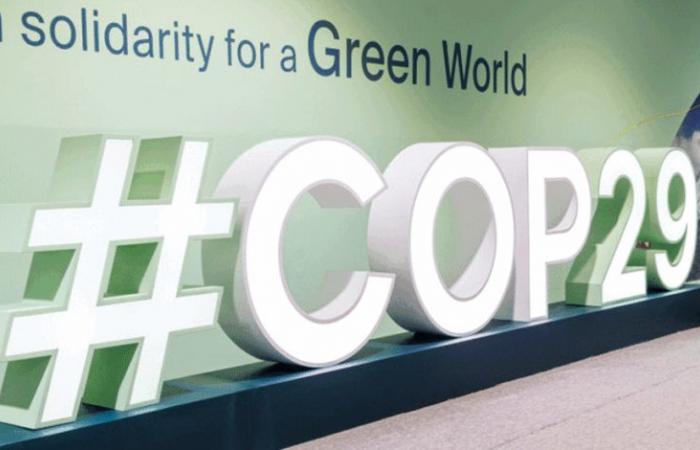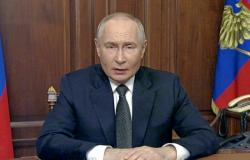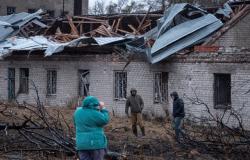Rich and developing nations entered the final phase of negotiations on the amount of financial aid at COP29 on Thursday, and the cards are starting to fall, with a more specific request from the huge group of G77+ countries. China.
A plenary called “kouroultaï”
The representative of this alliance of 134 countries from the South demanded from the EU, Japan or the United States “at least” 500 billion dollars in financing per year for the climate by 2030.
“We must not leave Baku without a clear figure”, launched the Ugandan Adonia Ayebare, in front of all the countries of the United Nations Conference on Climate Change (COP29) in Baku, during a plenary renamed “kouroultai” to reflect the regional culture of consultation.
No figures appear in the draft text published Thursday morning by the Azerbaijani presidency of the summit, which satisfied no one. A new version is expected in the evening, this time with amounts, promised the presidency of the COP.
“We are, frankly, deeply concerned about the flagrant imbalance” of the text, declared the American envoy John Podesta, following in the footsteps of the European Commissioner, Wopke Hoekstra, who denounced the work as “unacceptable as it stands”.
The latter and his European colleagues are demanding more commitments to reduce greenhouse gas emissions, blaming oil-producing countries that are slowing down, such as Saudi Arabia.
“The Arab group will not accept any text that targets a specific sector, including fossil fuels,” said Saudi delegate Albara Tawfiq, a year after COP28 in Dubai concluded with an agreement on the gradual abandonment of oil, gas and coal.
Irish Minister Eamon Ryan, however, confides to AFP that “this is progressing, it is obvious that this text is not final. It will be radically different, there is space for an agreement.”
China, a key player in finding the balance between developed countries and the developing world, called on “all parties to meet halfway”, through its representative Xia Yingxian, who also judged the text “unacceptable”.
China, however, has drawn a red line: the money it already provides to countries in the South should not be counted in the key objective negotiated in Baku, the amount that rich countries must commit to providing by 2030 or 2035.
The EU, the world’s leading contributor to climate finance, insists that China, Qatar and Singapore participate more transparently in the global effort so that humanity keeps its poorly launched commitment to limit warming to 1.5°C since the pre-industrial era.
« Caricature »
“Failure is not an option,” urged UN Secretary-General Antonio Guterres, returning from the G20 in Rio to support the final effort of a summit supposed to respond to the multiplication of climate disasters caused by humanity.
The text criticized by all is a 10-page provisional document published by the presidency in the early morning.
It “caricatures the positions of developed and developing countries”, deplores Joe Thwaites, of the NGO NRDC. “The presidency must propose a third option to reconcile them.”
This option, secret, was put on the table by the Australian Chris Bowen and the Egyptian Yasmine Fouad, the two ministers responsible for reconciling the positions in the home stretch of the two weeks of the summit, under the overheated tents installed in the Baku Olympic Stadium.
But it has not yet been revealed to the countries and the presidency is keeping it up its sleeve, three sources close to the negotiations confirmed to AFP.
“Political games”
The first option of the text reflects the demands of developing countries, demanding that “X” trillions of dollars per year be provided by public money from rich countries, obliged to contribute according to UN texts, and by associated private funds , “over the period 2025-2035”.
That is much more than the 100 billion that rich countries had committed to providing them over the period 2020-2025 so that they can adapt to climate change and invest in low-carbon energies. An unrealistic option for rich countries, especially in times of budgetary tightening.
The second option summarizes the starting point of view of rich countries: the financial goal would be “an increase in global finance for climate action” to “X” trillion dollars per year, “by 2035” , without specifying the part covered by developed countries.
But at the COP, however, no one reveals their real red lines until the last day, theoretically Friday, even if the negotiators are already preparing for at least one more day.






